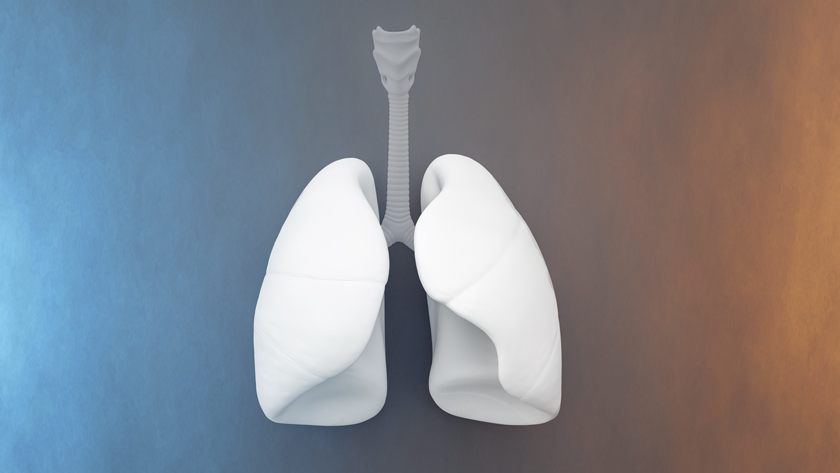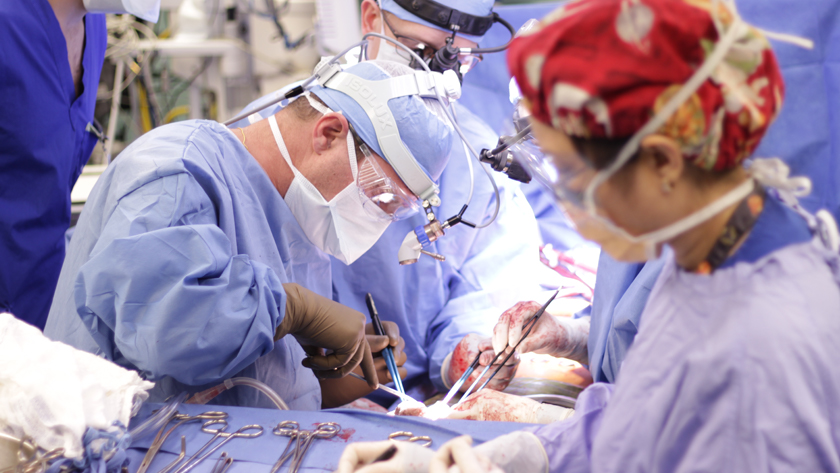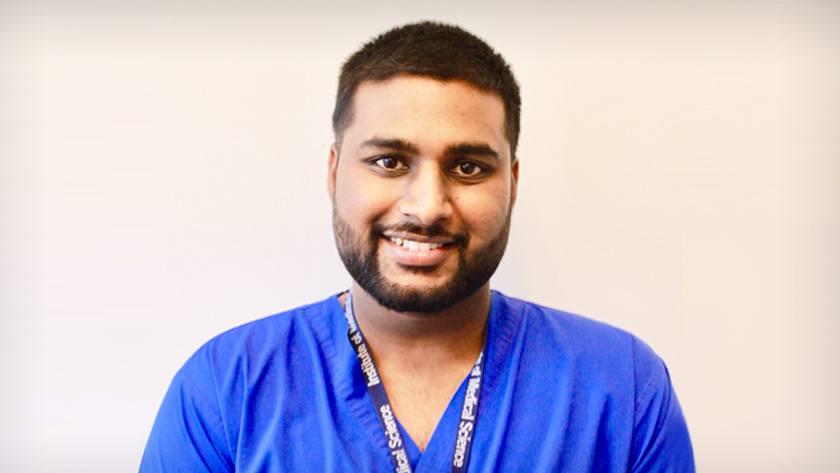
Researchers from the Toronto General Hospital Research Institute (TGHRI) and Ajmera Transplant Centre have identified a way to store donated organs that could raise the number of organs available for transplant.
Published in Science Translational Medicine, the research reveals that storing lungs at 10°C may preserve them for longer and lead to better lung function than current approaches, which involve 4°C storage temperatures.
The researchers, led by TGHRI Senior Scientist Dr. Marcelo Cypel and first author Dr. Aadil Ali, used an experimental model to measure the health of lungs after they were stored for 36 hours at either 10°C or 4°C. They found that storage at 10°C left lungs more elastic and better at delivering oxygen—two key readouts of lung function.
The researchers also assessed the health of the donor lungs by measuring levels of protective molecules in the tissue. In collaboration with Dr. Ana Andreazza, Professor in the Department of Pharmacology at the University of Toronto and founder of the Canadian Mitochondria Network, the team assessed mitochondrial protection. Mitochondria are compartments within cells that produce energy; their integrity is vital to the health of cells and tissues. The team discovered that preserving lungs at 10°C offered significantly better mitochondrial protection in comparison to the current gold standard of 4°C.
“After we saw these promising results in our experimental model and revealed how the warmer temperatures benefit organ health, we tested the approach in patients,” explains Dr. Cypel, who is also Surgical Director of UHN’s Ajmera Transplant Centre.
“Our aim was to see whether we could safely prolong lung storage, without compromising tissue health and function. If we can extend the period of time available for donated organs to be transplanted, we can provide life-saving organs to more patients in need and greatly improve the logistics around lung transplantation. As an example, the geographic location of donors would no longer be a limitation.”
There is a serious shortage of clinically acceptable donor organs to meet transplant needs. Currently, over 4,500 Canadians are on the waitlist for an organ transplant. According to the Canadian Institute for Health Information, one patient dies every 36 hours waiting for an organ.
“Given this shortage, we need to make the most of what limited organs we have available,” explains Dr. Ali. “One way to do this is to develop strategies to expand the window of time that an organ can be transplanted—this provides patients and health care professionals with the precious time needed for a successful surgery.”
The research team tested the new storage strategy to donor lungs that were transplanted into five patients. Using a warmer storage temperature, the team was able to extend the time that donor lungs were safely preserved from the current maximum of six to eight hours, to between 10 and 16 hours.
“All five patients responded well to the transplanted lungs and no patients experienced serious complications. While this is just a first step, our findings suggest that this storage strategy could represent a new standard of lung preservation—one that could provide more lungs of better quality to patients in need,” says Dr. Ali.
Aadil Ali, Aizhou Wang, et al. Static lung storage at 10°C maintains mitochondrial health and preserves donor organ function. Sci Trans Med. 2021 Sept 15. Vol 13, Issue 611. DOI: 10.1126/scitranslmed.abf7601.
This work was supported by Latner Thoracic Surgery Research Laboratories and the UHN Foundation/Ajmera Transplant Centre. M Cypel is a Tier 2 Canada Research Chair in Lung Transplantation. Please see the research article for statements of competing interests.

Dr. Marcelo Cypel (pictured on the left) and the Toronto General Research Institute surgery team performing an organ transplant.

Dr. Aadil Ali, first author of the study, is a postdoctoral fellow at the Latner Thoracic Surgery Research Laboratories and a recent PhD graduate in Lung Preservation & Transplantation at University of Toronto’s Institute of Medical Science.




